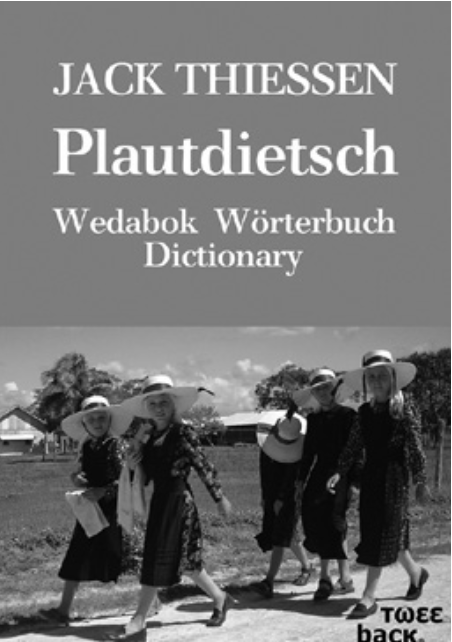Admonishment & Joy Deferred: Four Sermons of Aeltester Abraham L. Dueck
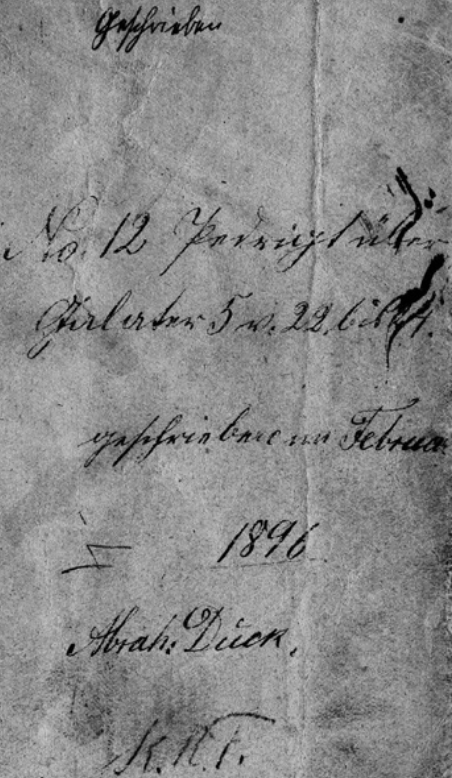
On a visit to a family member years ago, I asked him whether he had any old documents that might be of interest. He rummaged around in a closet and emerged with a shoe box containing a couple of frayed 4½ × 7–inch booklets. They proved to be sermons, written in the old-style German Schrift, by Abraham L. Dueck (1841–1899), my great-grandfather, once Aeltester of the Kleine Gemeinde in Manitoba. It seemed he had left the sermons in the care of his son-in-law, my grandfather Klaas R. Friesen (1870–1942), who became a minister in the same Gemeinde.
Unable to read the old Schrift, but curious, I took the booklets home. I found another sermon in the Evangelical Mennonite Church archives, and a fourth in a family history, Abraham L. and Elizabeth Dueck and their Descendants, 1841–1965. I kept them in a file folder for several years. One day, I decided to find out what they contained, and thus find out more about the life of my ancestor. These words written in his own hand held an allure for me, and from time to time I would open those booklets and leaf through hopefully as if they would magically reveal something. Finally, after several false starts, I began transcribing, one word and often one letter at a time. To my surprise I found that I could do this. Over time I ended up with transcriptions, including one which the late Bernadette Toews Plett of Steinbach completed with skill and devotion. I then translated all four sermons. The one published in the family history was numbered 22, evidence that my great-grandfather wrote many more than the ones in my possession. But these four were all I had. Later I learned that Gruenfeld (Kleefeld), Manitoba, historian Henry Fast had collected and translated Dueck’s letters, and these also provided glimpses into his thinking and the events of his life.
Dueck was the son of a Kleine Gemeinde minister, Johann Dueck (1801–1866), and Helena Loewen (1806–1879). He was born in Fischau, Molotschna, moved to Muntau with his parents, and after marrying Elisabeth Rempel (1841–1901) moved again to Gnadenthal and then to Annafeld in Borosenko colony. In Annafeld he was one of the three highest-assessed farmers and served as the fire insurance administrator (Brandaeltester) and possibly as village mayor (Schulz).1 He immigrated to Canada with his family in 1874. They settled in Gruenfeld, where Dueck was a song leader for nine years before being elected deacon in 1891 and minister in 1893. He was chosen as Aeltester in 1896.
The Lectionary
The four sermons, in the order that they would have been preached in any calendar year, are: Advent (text Romans 13:11–14, written November 1896), Epiphany (entitled “Three Holy Kings,” text Matthew 2:1–12, December 1895), Discipleship (text Galatians 5:22–24, February 1896) and Preparatory to Communion (text Isaiah 55:1–2, April 1896).
As was the practice in his time, Dueck preached – that is, read – the sermons in different communities on the East Reserve, and in Rosenort on the West Reserve. One sermon would be delivered multiple times. (This had also been the practice in South Russia.) At the end of the sermon on discipleship, he notes that it was given on four occasions: “1896, May 3, Steinbach / 1897, January 9, Rosenort / 1897, January 17, Gruenfeld / 1898, January 9, Blumenort.” He probably adhered at least partially to a lectionary, prescribing scripture readings for particular days on the calendar. Donald Stoesz has demonstrated that a broad range of Mennonite denominations in Manitoba, the Kleine Gemeinde included, relied on a lectionary borrowed from the Lutherans that goes as far back as Pope Gregory I in the sixth century.2 Dueck’s sermons, therefore, were not chosen just according to personal whim. He was always writing in context, echoing themes found in his predecessors’ texts and in much earlier Mennonite literature, though not referencing these influences directly. The only literary references in his sermons are to scripture or to anonymous “poets” – writers of Gesangbuch songs.
Life’s Two Dimensions
For Dueck, as for his Mennonite forebears, life consisted of two dimensions: “the world” and the Kingdom of God. When we come into this life, we come into the world, which is essentially an evil place, and thence we begin our pilgrimage to the Kingdom of God, which at times seems to denote a Christian community on earth, and at other times heaven in the afterlife. Although we are in the world, as Christians we are obliged to fight against it with all our might. Life is a struggle which ends only upon death. The world, in the words of seventeenth-century Dutch preacher Peter Peters, belongs to the devil and all the evils which accompany him, such as pride, greed, sensuality, a quarrelsome spirit, discord, dissension, and envy.3 When something is labelled weltlich, or worldly, all these things are implied. The world is “out there,” in city life, or in the larger society of non-Mennonites, but it also exists within the community in the form of everyday human foibles. It exists even in the guise of pietistic styles of worship: “Our fallen nature and the lusts of the world always fight against and hinder us . . . and therefore we have reason to daily crucify and die to sin. The worldliness of the so-called Christians is seen with their appearance of holy worship in singing, ear-pleasing teaching, exultation and audible loud prayer, and many other unsuitable things.”4 Dueck’s concern, ecclesiastically and socially, was to maintain and strengthen the proven faith and way of life of his forbears.
Christians needed to understand the dangers of this world not just to resist temptations of the flesh, but also in relation to the arc of time. Time began with creation as recorded in Genesis, and will end as foretold in Revelation and by Jesus himself. Dueck believed that humanity was living in a period just preceding the end of the world, which would be marked not only by the literal destruction of the earth, but – and more importantly – by the second coming of Christ in the clouds, followed by a great Judgment Day when everyone would have to account for themselves: “O that we might, with yearning urgency, endure the requirement to wait for the glorious, last appearance of the Lord in these last, danger-filled times, since we realize that the time for the fulfillment of this prophecy has almost come to an end” (Advent).
We are not only caught in the irreversible march of time; we are living in the end times, and it is only by God’s grace, which should never be taken for granted, that the Last Judgment has not already come, with eternal punishment for those who failed in faith and obedience. Dueck’s pleas for attentiveness echo those of the Old Testament prophets: “Also in this time the Lord Jesus has, above all, given in the gospel so many warnings, admonitions, and wakening calls as parables, examples, and illustrations, for our well-being and the salvation of our souls . . . and so today I also cry to you: repent! So that, when the Lord comes to pass his judgment, we, as poor sinners, may enter into blessed heaven.” He understood post-judgment life as time going on without end: “Eternity is a time such that one hundred years may be compared to being only a drop of water in the sea” (Communion).
Dueck showed no interest in millennialist teachings popular among the more pietistic Mennonite Brethren, and avoided any mention of scenarios of apocalypse and blood. He preferred to describe the joys which the faithful believer can anticipate. He concluded his communion sermon with a vision of an ideal fellowship: “How dear and pleasant that company will be for all who will sit at God’s table in heaven to eat this meal, from morning until evening, from midnight until noonday.”
Penance
Dueck’s themes in these four sermons fall in line with those of other Kleine Gemeinde and Old Colony ministers. Sermons were Vermahnungen, admonitions and warnings of the dangers of spiritual deterioration or error. This approach persisted well into the mid-twentieth century. One Old Colony Mennonite remarked: “You do not go to church to enjoy ease and comfort but to do penance for your sins.”5 The lack of any ornamentation inside the church building, the hard, backless benches, and the seemingly endless length of the service were all intended to reinforce this idea.
Penance, to be sure, was a repeated motif for Dueck, and the main theme of his Advent sermon on Romans 13:11–14. Donald Stoesz has illustrated that sermons on this text were part of the conservative Mennonite lectionary related to Advent. Chortitzer minister David M. Stoesz (1870–1934) preached on this text in Rhineland, Manitoba, in late November or early December multiple times.
Dueck draws upon the prototypical Biblical repentance tale, the story of Noah and the great flood. God sees humanity’s evil and feels “remorse that he had put mankind on the earth, people who did not want to submit any more to his punishment and rule.” God requires obedience, above all. Although he wishes to show mercy, he punishes the disobedient and requires of humans that they accept this scheme of things. In his great patience, God gives his children time to come to repentance, with many warnings of the consequences of refusal. But he will not be patient forever.
Dueck urged his listeners to examine themselves for evidence of sin and endure the attendant emotional pain. In his Epiphany sermon he pleads with them to “awaken from sin’s sleep, and through true remorse and repentance seek the dear Saviour.” The emotion accompanying repentance is remorse, “a gnawing distress arising from a sense of guilt for past wrongs.”6 Zacchaeus, the tax collector, heard Jesus’s appeal and was “moved and grieved to repent of his sin,” and then “it was through his deep feeling that [he] was filled with joy and rapture” (Communion).
Dueck recognizes that his challenge will meet with resistance: “Does it not often happen that, even when, in pitying tones, we are spoken to of our short time on earth, it is so hard for us to admit? How often we seek to diminish, how hard it is for us to confess, how indifferent we are then to wrongdoing – and how agreeable the remission of sins before God” (Communion)
In passing, Dueck voices his suspicion of the tendency to dodge around remorse and escape into the embrace of forgiveness. Overly facile forgiveness, isolated from a sense of personal moral responsibility, leads to complacency and “great misfortune.” Penance requires sincerity, humility, and “childlike hearts” and becomes habitual to the faithful Christian. “For the whole of our lives” it demonstrates to God “the change in our lives” (Epiphany).
Root of Evil
Of what, exactly, did Dueck expect his congregation to repent? He rarely mentions specific shortcomings or offences, resorting instead to generalities or lists from scripture. The “earthly” and “temporal” are contrasted with the “heavenly” and “eternal.” “Earthly” seems to be a catch-all word for the material world of making money, building shelter, buying clothing, and so on. Dueck would certainly have endorsed all such activities as necessary for life; his warnings are about getting overly attached to them so that they become ends in themselves. In his letters he makes the standard “confession” common in the correspondence of his co-religionists: “Physically we are fairly well. In the spiritual sense we are hurting and daily need to cry to the Physician for help.” He goes on, however, to report specifically on physical things: “The harvest was fairly good. We got 10 to 18 bushels per acre for wheat; barley and oats 20 to 30 bushels per acre. Potatoes yielded 10 to 26 bushels per bushel of seed. The wheat price is up to $1.00/bus. Oats from $.50 to —? bus. Potatoes sell for $1.10 to 1.30/bus. Eggs sell for 30 to 35 cents/doz.”7
He also did not hesitate to press a friend to collect money owing him in South Russia: “Last year because of the poor harvest out there I did not pressure the debt to be paid, but this year with a good harvest I believe that the debts can be quickly taken care of. Also, because the grain prices are high, could the debts together with the interest be paid without delay? Please remind the debtors to respond. Please also inform us when the money can be sent as we will need the money this spring.”8
Evidently, when Dueck says we should not be too attached to the temporal and the earthly, he does not mean that we should ignore the practical imperatives of life, including commercial exchanges. But how do we find the line between allowable attachment and over-attachment? He doesn’t say. Nor does he say that there is no happiness to be found in this world; only that, whatever we do find, it is not the greatest happiness. We should be aware, always, that “here have we no continuing city, but we seek one to come” (Hebrews 13:14, Epiphany). Also, we are “strangers and pilgrims on the earth” (Hebrews 11:13). Dueck was not alone in citing these classic passages, often quoted by conservative Mennonites in warning against weltlich temptations.
For Dueck and the Kleine Gemeinde in general, perhaps the greatest temptation, to be most strongly resisted, was material wealth. Among the Mennonites of South Russia prior to the 1870s migration to North America, some were poor and a significant number were landless. In general, however, the Mennonites made great gains in material wealth and were much richer than their Russian peasant counterparts. Their basic economic activity was farming, but milling and manufacturing were common, and even farmers traded grain in international markets. Small-scale merchandising took hold as well. Among the Kleine Gemeinde, who by the 1860s had moved as a group to Borosenko colony, the majority were reasonably well off, and a small minority could have been designated as “wealthy.”
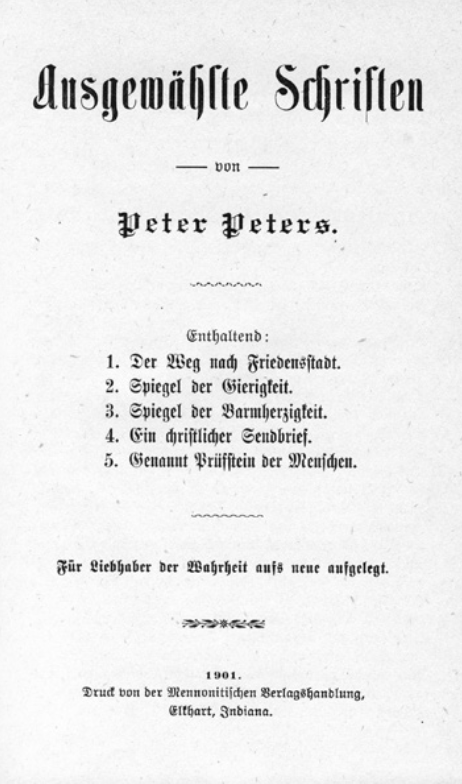
In The Way to the City of Peace (1625), Peter Peters warns against Gierigkeit, translated variously as “greediness, covetousness, avarice, desire for great wealth or power.” In medieval times, of course, greed was one of the seven deadly sins. For Peters it is “the root of all evil,”9 echoing 1 Timothy 6:10.10 Gierigkeit is greed, but also implies something broader, a sort of bottomless desire. Such desire attaches itself to the things of this earth, and to life itself, and if given free rein it leads a person away from God. In Dueck’s words, “if we give room in ourselves for greed, the root of all evil, and by which the soul at last is destroyed, through this people are easily compelled away from the good” (Communion). With solid understanding of human nature he observes further: “The earthly does not give satisfaction, for when such a person has much, he always craves more, for just when he has had one of his desires fulfilled, then many other desires come to play in his mind” (Communion).
This topic continued to be preached among the Kleine Gemeinde well into the twentieth century. On July 21, 1912, Cornelius L. Friesen gave “a powerful message about riches and the love of money” in Rosenort, pleading with his listeners to read Peter Peters on the subject.11
The wealthiest individual to hear Dueck’s warnings was Steinbach merchant Klaas R. Reimer (1837–1906), a grandson of Kleine Gemeinde founder Klaas Reimer (1770–1838). By 1893, K. R. Reimer’s general store had annual sales of more than $14,000, a figure that kept growing in succeeding years.12 Meanwhile, his sons opened a variety of successful businesses, including a cheese factory, a lumber yard, and a lucrative general store called the H. W. Reimer Store. Other entrepreneurs began dealing in farm implements, and a large flour mill was also erected. In 1895 church leaders paid Reimer a visit to admonish him for his business dealings.13 Quite possibly Dueck, an elected minister by then, was present. In any case, such admonitions were powerless to prevent the growth of a thriving business class among the Manitoba Kleine Gemeinde, centred in Steinbach.
Ironically, the church leaders’ continued opposition to materialism probably contributed to the formation of a new, more business-friendly Gemeinde called the Bruderthaler (later the Evangelical Mennonite Brethren and now the Fellowship of Evangelical Bible Churches) in 1897. Adding to the irony was the fact that the driving force behind the upstart church was Dueck’s brother-in-law Heinrich Rempel (1855–1926), whom Abraham and Elisabeth had sponsored to come to Canada in the 1880s.
Dueck also disapproved of the overreaching ambition of Jacob Penner (1828–1889), husband of his sister Helena. Penner owned many thousand desiatiny of land in Russia, large herds of cattle and horses, and a “very large massive two-storey dwelling house built of kilned bricks.”14 By 1896 the Penner estate was in financial straits, and Dueck could not refrain from commenting: “Had our dear brother-in-law striven after the kingdom of God and his righteousness and not tried to be the big nobleman, his farm would not have been as large.”15 And, by implication, his financial and spiritual fall would not have been so precipitous.
For Dueck, the folly of a life given over to the accumulation of wealth is underlined by the simple fact of human mortality: “How often does it happen, that one who has wholly dedicated himself to the things of this world, and has immersed himself entirely in the cares and business of this life, meets his death?” (Discipleship).
Crucify the Flesh
Greed was a component of a larger category of sin called “the fleshly,” encompassing sensuality, pleasure-seeking, desire, and even aesthetic impulses. Christians must constantly “fight and struggle violently against our flesh and its lusts and desires” (Advent). Years earlier, Heinrich Balzer, a Kleine Gemeinde minister at Orloff, Molotschna, made a list of behaviours among the Molotschna Mennonites which might well serve as a model for Dueck’s definition of “our flesh”: “Pride, ostentation, vanity, greed for money and lust for wealth, avarice, drunkenness, luxury, vicious life, masquerades, obscene songs, gambling, and above all the miserable smoking of tobacco – they all have become the passionate habits of the Mennonites.”16
The Kleine Gemeinde did its best to stamp out all such behaviours and create a church “without spot or wrinkle.” They fell short, but by Dueck’s time they had created a community where these “habits” (except for “lust for wealth”) had almost been stamped out or driven underground. As Aeltester, Dueck was a guardian, trying to ensure that these behaviours did not make a resurgence.
At times Dueck must have felt like a prophet crying in the wilderness. He could only decry the prodigal behaviour of Isaac B. Plett, married to his daughter Elisabeth: “He left on July 28 [1896] with his team for Winnipeg, a week after her confinement, at which he was not present. His reason for leaving his wife and family and to justify his action was that she did not cease to admonish him to turn from his ways. He sold his team and wagon in Morris in order to get more money to travel and together with money he had gotten in improper ways he had a total sum of $500 to $600 to travel from one city to another on the train. As it seems, he spent his life in all kinds of pleasure, frivolity, and ungodly activities in every large city like Omaha, Chicago, and others till he spent his money.”17
Plett, along with some friends, had travelled to the Chicago World’s Fair (the very name condemns the event!) in 1893. Unlike almost everyone else in his community he did not struggle against his own desires, but went over to the “enemy” and immersed himself in the very world against which he had been so strongly warned. He left the church, or was excommunicated from it, and died an outcast in 1933. Instead of having “crucified the flesh” – the phrase, from the apostle Paul, is frequently quoted by Dueck – he indulged it, and for that, it might be said, he was himself crucified. Neither words of persuasion nor the threat of eternal punishment were incentive enough to bring him back into the fold.
Neither Balzer nor Dueck gave much attention to gluttony, which their Catholic antecedents had labelled a deadly sin. Peter Peters had repeatedly lamented of the wealthy Dutch Mennonites of his day that “their belly is their god.”18 But with the passage of time, the importance of this sin diminished. Denied so many other pleasures, the Mennonites seemed to have tacitly allowed themselves this one. Both the merchant Klaas R. Reimer and Dueck’s brother Peter weighed more than three hundred pounds.
Dueck also concerned himself with minor sins, such as gossiping, reaching into the Apocrypha for his guiding words: “Sirach 19 gives us a beautiful teaching, where he says if you hear wicked gossip, do not repeat it, for keeping silent will not do you any harm” (Communion).19 Maybe the teaching was beautiful to him because of its understatedness, which suited his mild-mannered personality. But he shores up his point with a more imperative passage from Paul: “There shall be no debate nor envy, wrath nor quarrelsomeness, slander nor tale-bearing, nor any insurrection. 2 Corinthians 12.” The faithful shall not rush to judgment even when they hear slander against themselves, “but rather speak to your neighbour so that he does not do it anymore” (Communion). In a conflict-avoidant communal culture, gossip would have been standard practice, and the admonition to confront others directly would probably not have had much effect.
Pride
Balzer put “pride” at the head of his list of Molotschna Mennonite transgressions. For the early Anabaptist writers pride was the quintessential sin, and Dueck gives it due attention. “Are there not many among us,” he asks rhetorically, “with proud and arrogant hearts, clouded and darkened with opulence and self-love?” (Epiphany). By today’s standards, this “opulence” would have been so subdued as to be unrecognizable, but apparently it had to be warned against. Pride could take different forms – overemphasis on personal appearance and fine clothing, seeing others’ faults but not one’s own, wilful insistence on being right, refusal to repent of wrongdoing, or striving for superiority in relationships. All of these attitudes and behaviours warranted condemnation, and Dueck includes them all in his sermons. Perhaps his most salient point is this: “We should not think of ourselves as greater than what we deserve” (Advent). We must cultivate the key virtue of humility, a nuanced idea expressed variously as Demuetigkeit, Armseligkeit, Niedrigkeit, and Geringheit (modesty, earnestness, lowliness, and humbleness). The self must be crucified.
Dueck is faithful especially to the teaching of Peter Peters, who points out that true Christian love does not seek self-interest, but the well-being of one’s neighbour.20 The early Anabaptist vision of the Kingdom of God on earth required a spirit of submission from the entire community, sometimes known as Gelassenheit, a term which has earned its own entry in the Global Anabaptist Mennonite Encyclopedia Online, where it is defined as “self-surrender, resignation in God’s will, yieldedness to God’s will, self-abandonment, the (passive) opening to God’s will, including the readiness to suffer for the sake of God, also peace and calmness of mind.”
For Dueck, the purpose of this self-surrender mainly seems to have been “peace” – harmony and unity among the community of believers.21 He saw this community as an island in the midst of a sea of sin, constantly encroached upon by technological innovations, entertainments, and ornaments of various kinds. It was pride that prompted church members to give in to the devil’s temptations, or even actively pursue them, and so come into conflict with the elders. It was pride that prompted individuals to dispute over debts or slander or diverse interpretations of scripture. Even those who live righteously are not immune from pride; indeed, they might be especially subject to it, persuading themselves “that they obey all of God’s commands . . . and therefore hear every wake-up voice as meant only for others” (Advent).
People could not hope to conceal wrongdoings from the eye of an all-seeing God. They might think that family members or neighbours or church elders do not see their sins, but they cannot comfort themselves with this delusion: “Let us never [like Herod] try to conceal things and think, ‘God does not see it.’ All things are naked and opened unto his eyes. We must also set aside all reckonings. So let us not try to avoid the truth with our words or actions – before him everything which in us is so deeply hidden is as clear as daylight” (Epiphany). This “searchlight” God was a powerful agent of social control, and Dueck had no qualms about invoking him. After all, the Enemy could not be underestimated in his constant efforts to lead one astray.
Fear and Joy
Historically, Anabaptist writers did not emphasize the doctrine of original sin as it was articulated by the Catholic Church. Specifically, the Anabaptists, opposed as they were to infant baptism, rejected the teaching that infants, if not baptized, were in danger of eternal punishment. Writing to his brother Bernhard, Dueck gives deceased children a place in heaven: “Scarlet fever is found among the children, especially among the 2- to 6-year-olds. Among some parents the count of their children has decreased. The Lord has not only taken one or two but sometimes three of these precious ones into his kingdom.”22
While still in Russia, four of Abraham and Elisabeth’s offspring had died in infancy or childhood. In Canada, their last-born, Katharina, died as a one-year-old. Dueck believed that God’s grace extended to them all. Nevertheless, like his spiritual forbears, he also believed that humans had a sinful nature, passed on through the disobedience of Adam and Eve. Christ appeared in the world “to save us poor sinners from the devil and hell, where we all, through Adam’s fall, lay so miserably imprisoned in death’s deepest darkness, covered by a dense cloud of damnation” (Epiphany). Dueck even uses the term “original sin” (Erbsuende) on one occasion, calling it a “poison” whose only antidote is God’s grace (Advent). Each such reference is followed by gratitude for God’s love and mercy which overcomes sinfulness.
“We poor humans, fundamentally corrupt,” should be filled with joy to know that we are recipients of divine grace, bestowed through Christ’s sacrifice: “To such a great happiness we . . . are called by the loving Redeemer, who left his throne, and in loving compassion, and in the lowliest way, came into this sad world to suffer and die and give his precious blood as payment for us” (Discipleship). But we dare not be passive recipients of grace; we must act. Dueck articulates a core concept for the Kleine Gemeinde: “Each one who from his heart wants to attain this can take pleasure in this inexpressible joy, if he also, in this time of grace, works out his own salvation with fear and trembling” (Discipleship). Seventy years earlier, Aeltester Abraham Friesen declared that we must live “not in the fear of the world, but out of the fear of God before whom I must at all times work out my salvation with fear and trembling, Philippians 2:12.”23
We should be joyful; we should be afraid. It is a double bind. Over again Dueck tells his audience of their inheritance of salvation, and each time he follows with a reminder that this great gift is conditional, and they must never assume they are secure in claiming it. We are to be Rechtschaffend, righteous, upstanding, and then leave the rest to God.
At the same time, Dueck could be profuse in describing the reward awaiting the faithful, who have a “holy inheritance linked forever to eternal joy, pleasure, and rejoicing,” a “homeland which is above” (Discipleship). Eternal pleasure – the German word here is Wollust, which often translates as voluptuousness or lust – seems an incongruous enticement for a strictly monogamous, sexually repressed culture. Joy could be imagined, but had to be postponed until after death: “Forever remain my light, Jesus my joy, until the last day dawns after the ending of all sorrows, and I, clothed in white, leap for joy, singing without ceasing, made whole by God” (Epiphany). Dueck borrows the wording from the book of Revelation.
As long as we draw breath, we are not safe from the Enemy’s snares: “You cannot have confidence in eternal salvation, though I dearly hope that all of us may attain it” (Communion). Remarkably, Dueck’s own brother, Peter, took pretty much the opposite view: “It is sad that today, many people in so-called Christian circles say you cannot, must not, know how you rate with God, whether you are under grace, or condemnation; whether you have peace with God or not. But this is because they are not sincere, and consequently don’t experience the peace which God gives, even as they don’t earnestly desire the same. These people count it as foolishness when a faithful believer speaks about eternal salvation and claims to possess it.”24
Understanding and Reason
The question of how the holy scriptures should be interpreted was at the centre of Mennonite religion and was also Dueck’s concern. Everyone was expected to read the Bible but variant opinions and interpretations were not wanted. Instead, it was anticipated that each person would come to the correct understanding, as long as he or she had conquered self-pride. A prideful attitude would lead to error: “The unbelieving Jews” at the time of Christ had been led by their own “wisdom, will, or reason, which is also followed now by all deluded Christians who turn the teaching of the gospel to their own reasoning, always making mistakes, and becoming blinded so that they love the darkness more than the light” (Advent). It was therefore “highly necessary that man examines himself sharply.”
In his mistrust of reason, Dueck follows Balzer. In his treatise on Verstand und Vernunft (understanding and reason), Balzer argued that natural reason, a product of the secular intellect, could only mislead the sincere Christian, who was to be guided instead by understanding, the “mind illuminated by the Holy Spirit.”25 And this was not an individual but rather a collective pursuit, as Dueck describes: “For only he will be guided to heaven by God’s pure word who is eager, in all honourableness, to receive it, and accept it with an undivided heart. Who is also ready gladly to participate in the gatherings of the true believers whenever possible, who are agreed on basic principles, so as to receive the correct beliefs in God and our Lord Jesus Christ, and to live in accordance with these” (Advent).
Dueck often speaks of Rechtglaeubigen: true believers who follow the scriptures in a manner consonant with the Kleine Gemeinde orthodoxy. Such belief is not arrived at by conventional study. “All outward knowledge or learning, without God-given wisdom, is of no use in coming to know the Lord, but rather is a detriment” (Epiphany). For the Kleine Gemeinde, a limited primary school education, enough for children to learn reading, writing, and basic arithmetic, so that in turn they could read the Bible and conduct a farm economy, was enough. More was too much. And it was always “understanding,” and not “reason,” that Dueck sought to employ when composing his sermons. Such understanding requires a childlike mind. At the same time, the arguments in his sermons are logically developed in a rather unchildlike “if this, then that” pattern. Passages from the Bible, of course, are his starting point.
Surprisingly, for one steeped in tradition, Dueck frequently speaks of seeking God, or seeking the truth. He also insisted on an experiential faith, not just one that follows the rules. He believed that all humans possess a desire to know God. “Everyone,” he says, “may experience and feed his soul’s hunger. See and taste this sweet food of heaven, hidden in our Jesus’s dear breast, and all of the abundance enjoyed by a hungry or thirsty soul” (Epiphany). The sensual imagery here is not typical for Dueck, but does seem to show that he was influenced by the very pietists he vocally opposed. Seeking is an active decision, arrived at through repentance and faith: “When a person sincerely seeks God with his whole and true heart, God will not allow him to remain in error, but rather will help him on the right way to Jesus Christ” (Epiphany).
Historical events threw people’s assumptions of doctrinal correctness into doubt. The fact that half the community in Gruenfeld had left the Kleine Gemeinde in the early 1880s and embraced the teachings of John Holdeman shook the confidence of those who remained. The pressure to find true Biblical meaning increased: “We have very good reasons, in this our troubled time, to prove every spirit which appears with this word of God, to see if they teach living and behaving in accordance with it” (Advent). Dueck was more explicit in his letters: “It is necessary in these last sad times to continually call on the Helper and Giver of all good things for mercy to see with open eyes that we might not be led astray. The Lord himself said in Matt. 24 that there will be great distress unequalled from the beginning of the world till now. There will rise up false Christs and false prophets who perform great signs and wonders to deceive even the elect if possible. O yes, Satan in these times clothes himself in words of scripture and appears as an angel of light.”26
In another letter he observes, “One baptizes to the front, the other backward, and each seeks to accord this with the holy scripture and they can, because of the outer picture or sign, not work together. Each party thinks the other is unworthy. Yes, each says, ‘Here is Christ.’”27 His frustration is clear, but finally he is unable to clarify the matter. Different Christians interpret the Bible differently. Which way is true?
Metaphor
Unschooled though he was, Dueck still knew that not everything in the Bible could be taken at face value. The scriptures may contain meanings which cannot be penetrated with normal reasoning or literal reading. At the time of Jesus’s birth “the high priests and learned scribes knew, from the holy word, that Jesus, the new king, had to be born in Bethlehem. But what did it help them to know this when they stayed in Jerusalem and did not go to Bethlehem, having only the literal awareness of the holy writings and external knowledge” (Epiphany). And further: “Let us not read the holy writ only with a literal knowledge, but rather consider that through it we are brought to Christ” (Epiphany). Dueck’s entire reading of the story of Christ’s birth and the visit of the Magi is literal but also allegorical; he reads it as history but also at a deeper level for its spiritual meaning.
He knew that writers use literary devices – metaphors, images, symbols – to convey thoughts and experiences or to give colour and energy to the facts being presented. He tries to bring home the story of the Magi by urging his listeners to “give to him [Jesus] the frankincense of our faith in God, [the gold of our] devout prayers, and the myrrh of our true penitence and conversion.” A little further on he varies the comparisons: “the gold of belief, the frankincense of prayer, and the myrrh of true penitence.” His inspiration for this symbolic reading seems to have come from the prayer of an unnamed poet whom he quotes: “As our myrrh we give patience and repentance.”
Dueck seems to have worried that his unsophisticated listeners might not understand figurative language. He quotes Jesus speaking to the woman at the well, saying “whoever drinks of the water that I give will never thirst again,” and feels compelled to explain that “this and other passages like it speak of spiritual eating and drinking, of which Christ also often spoke, with the intention of giving examples of the spiritual through bodily eating and drinking” (Communion). “All of these and other sayings we must understand spiritually,” he continues. Ironically, he was likely completely unaware that he was a practitioner of an ancient allegorical method.28
Conclusion
At times, when translating Dueck’s sermons, I found myself awash in abstract concepts, repetitions, and run-on sentences. I wondered whether his listeners might have had an experience something like mine, being overwhelmed and finally lulled to sleep under the relentless slow avalanche of admonishment. Or did they actually listen, and take heed and inspiration? I imagine that the precepts and scripture passages sank into their unconscious minds and wove themselves into the fabric of their everyday lives. I am glad to have had the opportunity to stop the action, as it were, and parse the meaning in Great-grandfather’s writings, and in this way come to know at least a part of him.
By the time he reached the age of fifty-eight, Abraham Dueck, sick with a serious kidney ailment, was indeed tired of life. By 1899, he had been predeceased by all of his siblings. In a letter to a cousin, he lamented: “Now I, as the least of my siblings, am the only one left to stay in this evil world.”29 And then his turn came, as described by his grandson Isaac D. Plett: “‘I guess that you will want to see Grandpa die.’ Those words struck my ears. It was July 18, 1899, in the late afternoon. I was shoved into the room along with others. We all stood by the bed. Age 12 at the time, I was seized by the earnestness of the moment. On the wall at the foot end of the bed hung the big clock, and at the other end stood Dr. Harrison with his snow white beard and hair. The last minutes went by quickly and then I heard the doctor say, in English: ‘It is all over now.’ I can still see him pressing Grandfather’s eyelids shut. Then I looked at the clock and saw the hour hand pointing at 4.”30
Ironically, although Dueck held a lifelong anger toward John Holdeman for coming and splitting his Gemeinde in two, “the Holdemans’ Peter Toews publicly celebrated what the Kleine Gemeinde themselves would not dare, that ‘we need not consider him lost for he showed in word and deed that he was righteous.’”31 He had often spoken of his desire for “that homeland with no tears, where the conqueror has prepared a city of noble peace, a hope for all who have fought for so long and all life-weary wanderers, where no one will get tired of life any more” (Discipleship).
- Delbert F. Plett, ed., Leaders of the Mennonite Kleine Gemeinde in Russia, 1812 to 1874 (Steinbach, MB: Crossway Publications, 1993), 439
- Donald Stoesz, Canadian Prairie Mennonite Ministers’ Use of Scripture: 1874–1977 (Victoria: FriesenPress, 2018).
- Peter Peters, Ausgewählte Schriften (Elkhart, IN: Mennonitischen Verlagshandlung, 1901), 13. This and subsequent quotations from Peters translated by the author.
- Letter to A. L. Friesen, Feb., 1899. Copies of Abraham Dueck’s letters were provided courtesy of historian Henry Fast.
- Helen Zado, “The Western Mennonites,” Maclean’s, June 15, 1931.
- Merriam-Webster Dictionary.
- Letter to Peter and Heinrich Rempel, Jan. 20, 1882.
- Letter to Isaac Friesen, Feb. 25, 1882.
- Peters, Ausgewählte Schriften, 21 and 26.
- “The love of money is the root of all evil.”
- From the diary of John W. Dueck in Prairie Pioneer: Writings and Genealogy of John W. Dueck (n.p., John W. Dueck Committee, 1995), 137.
- Royden K. Loewen, “Klaas R. Reimer: From Rags to Riches but not from Village to World,” in Historical Sketches of the East Reserve, 1874–1910, ed. John Dyck (Steinbach, MB: The Hanover Steinbach Historical Society, 1994), 308.
- Royden K. Loewen, Family, Church, and Market: A Mennonite Community in the Old and New Worlds, 1850–1930 (Toronto: University of Toronto Press, 1993) 160.
- Johann W. Dueck in Delbert F. Plett, ed., History and Events (Steinbach: D. F. Plett Farms, 1982), 86. Also see Dan Dyck, “Jacob Penner: A Mennonite Communist,” Preservings, no. 42 (2021), 43–45.
- Letter to Bernhard Dueck, June 2, 1896.
- Heinrich Balzer, “Faith and Reason: The Principles of Mennonitism Reconsidered, in a Treatise of 1833,” Mennonite Quarterly Review 22, no. 2 (April 1948): 90.
- Letter to Bernhard Dueck, June 2, 1896.
- Peters, Ausgewählte Schriften, 35.
- Sirach 19:6: “Never repeat a conversation, and you will lose nothing at all.”
- Peters, Ausgewählte Schriften, 47.
- In his Discipleship sermon he states: “One of our dear [Apostle] Paul’s deepest joys was to know that the church was ever united and of one mind, and he admonished them that this was how they should fulfill their own joy, through being of one mind, loving each other equally, being of one accord, and humbly regarding the other as higher than oneself. Each one should be a part of the whole, as Jesus Christ himself was.”
- Letter to Bernhard Dueck, Mar. 22, 1894.
- Letter from Aeltester A. F. Friesen to his brother, 1824. Quoted in Delbert F. Plett, The Golden Years: The Mennonite Kleine Gemeinde in Russia, 1812–1849 (Steinbach, MB: D. F. P. Publications, 1985), 272.
- Note on Romans 8:16, 1875, by Peter L. Dueck, in Prairie Pilgrims: Sequel to Prairie Pioneer (n.p., John W. Dueck Book Committee, 1999), 38–9.
- Global Anabaptist Mennonite Encyclopedia Online, s.v. “Balzer, Heinrich (1800-1846).”
- Letter to Peter and Heinrich Rempel, Jan. 20, 1882.
- Letter to Peter and Heinrich Rempel, July 14, 1882.
- See, for example, Karen Armstrong, The Bible: The Biography (Vancouver: Douglas & McIntyre, 2007), 49–50
- Letter to Jacob Dueck, Apr. 13, 1899.
- In Peter H. Dueck et al., eds., Abraham L. and Elizabeth Dueck and their Descendants , 1841–1965 (n.p., 1965), 20.
- Loewen, Family, Church, and Market, 176.
Also In this Issue
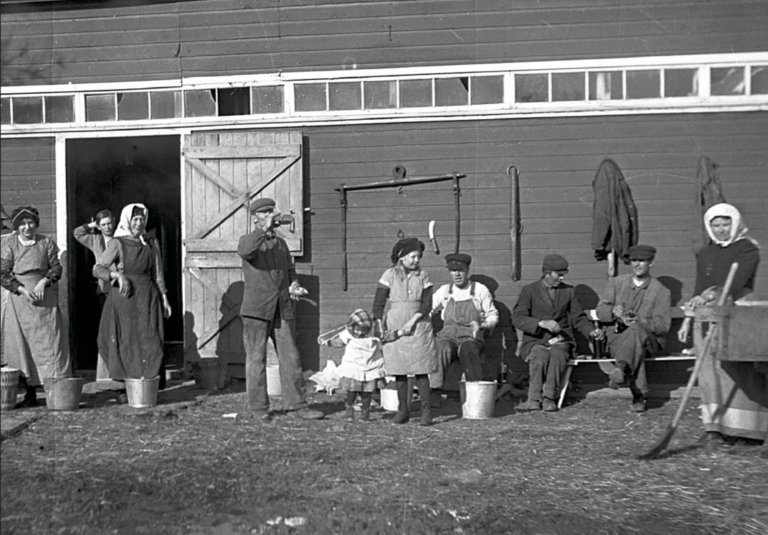
Proof in Material Culture: Mennonite Alcohol Consumption
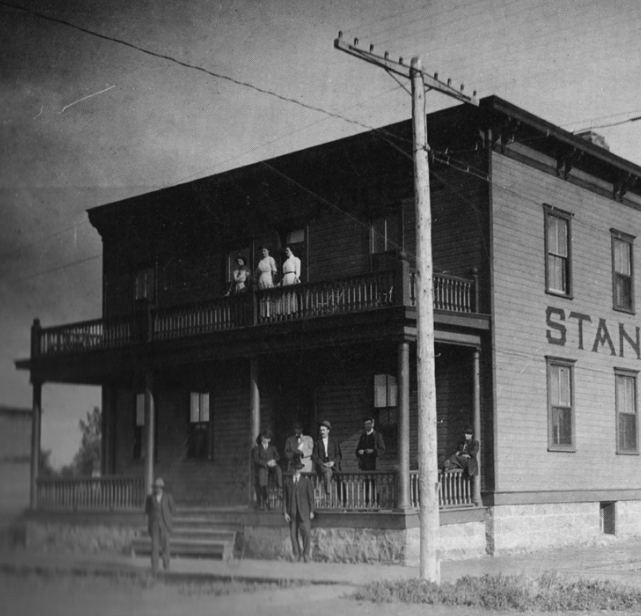
Liquor Licenses: Winkler of the 1890s

Objections to Alcohol: The Rise and Fall of Temperance in Winkler
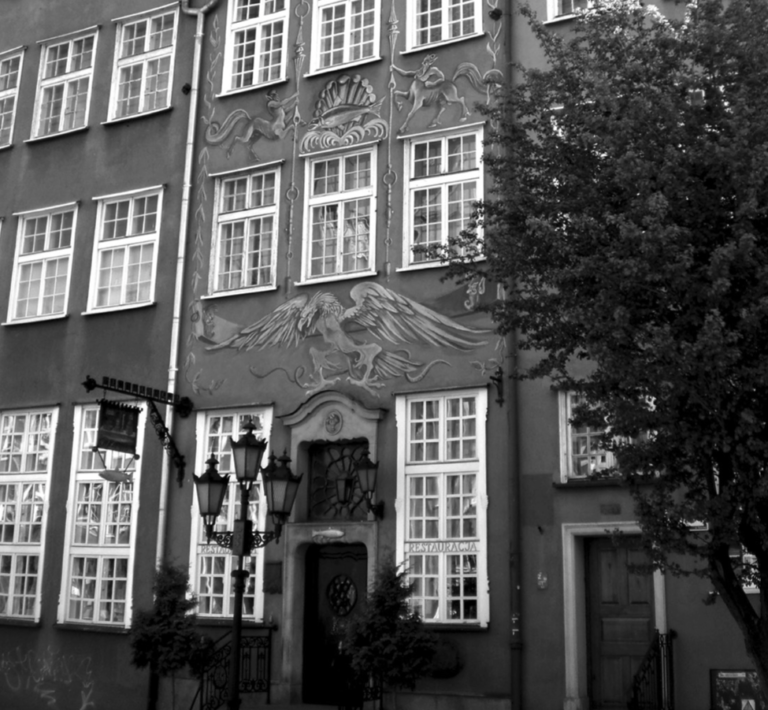
Mennonite Nectar: Alcohol Production in the Vistula Delta
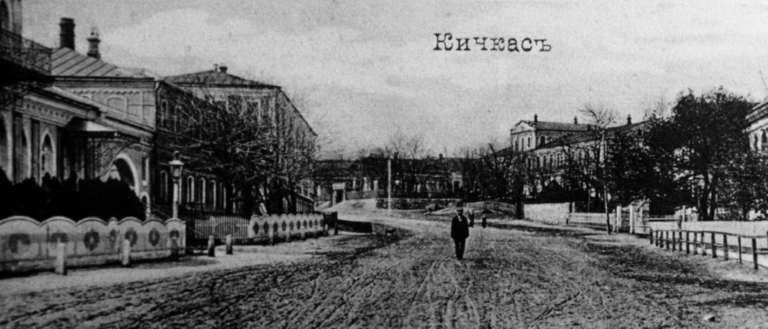
Alcohol Production: In the Chortitza and Bergthal Colonies
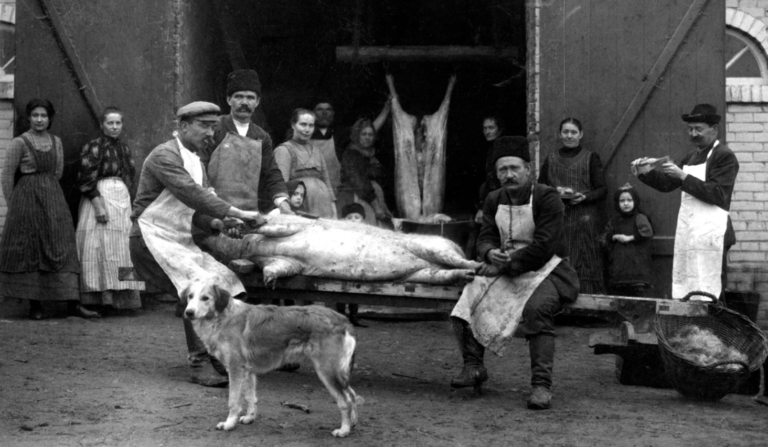
Alcohol & Abstinence: Mennonites in South Russia

Addiction & Recovery: Mennonites in Mexico & Bolivia

The Political Life of Jacob Penner
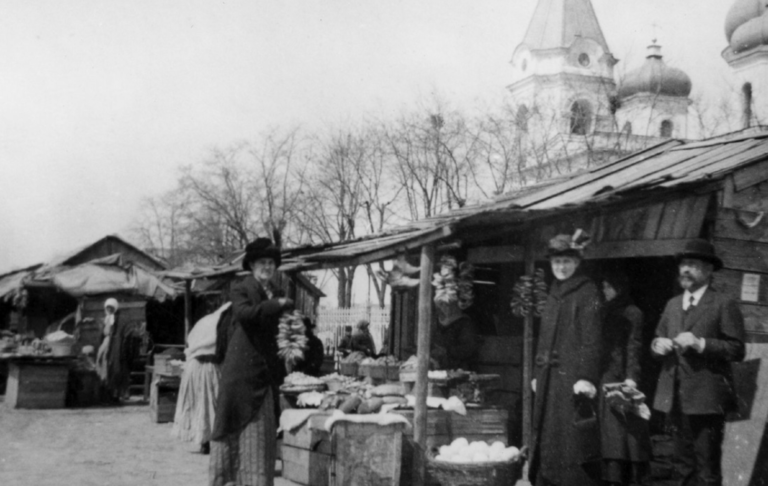
A Mennonite Travelogue: Martin B. Fast in South Russia
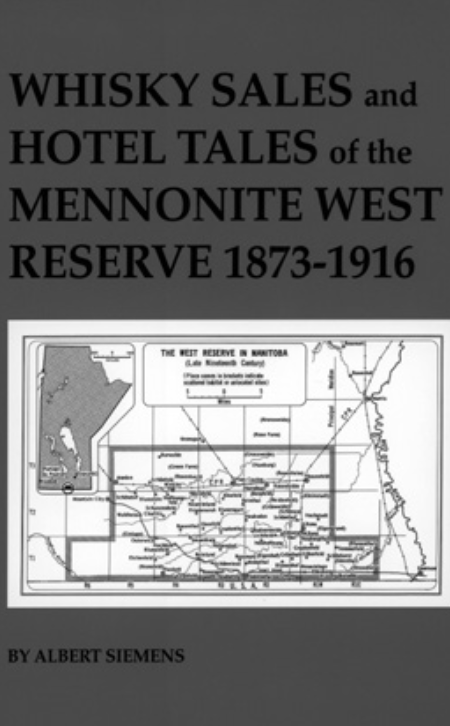
Whisky Sales and Hotel Tales of the Mennonite West Reserve, 1873-1916
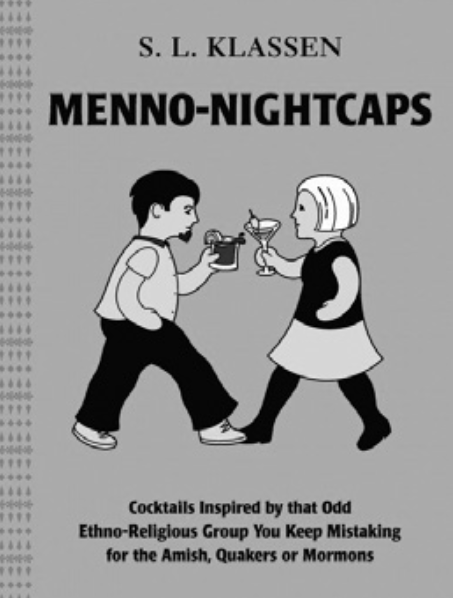
Menno-Nightcaps: Cocktails Inspired by that Odd Ethno-Religious Group You Keep Mistaking for the Amish, Quakers or Mormons
